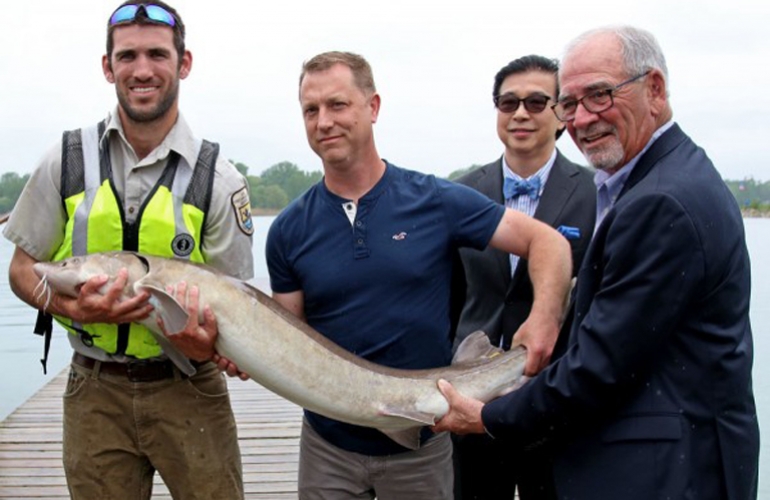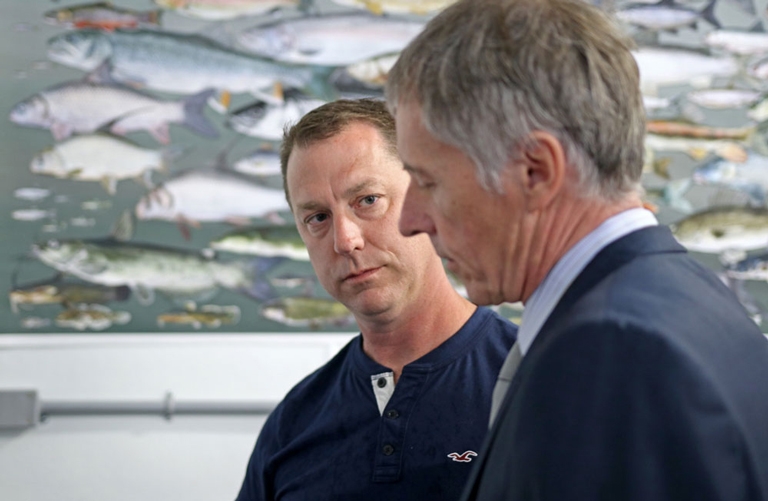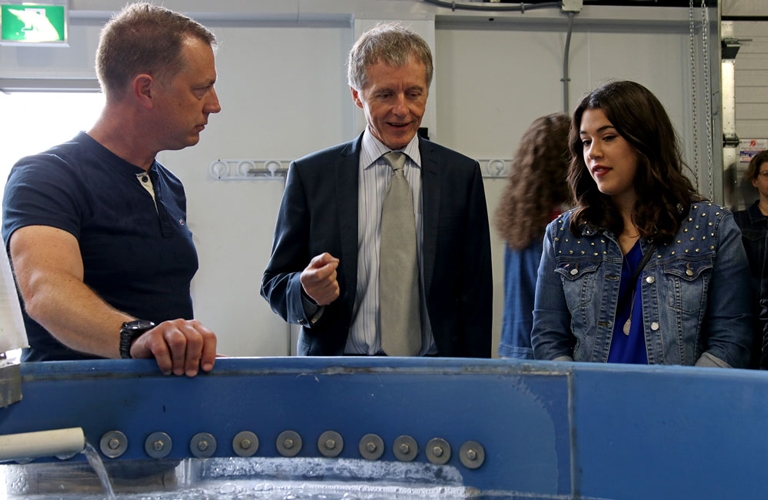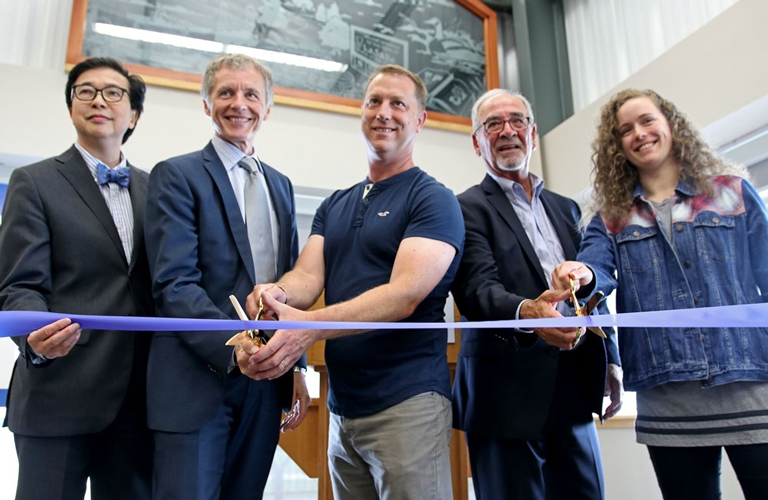
Students at the University of Windsor can now measure the stress levels of a pickerel swimming against a strong current, the turbidity of hazy tributaries feeding into the Great Lakes, and the behaviour of the invasive sea lamprey without wading into remote and distant waters.
The Freshwater Restoration Ecology Centre in LaSalle is the only research facility of its kind in the Great Lakes Basin and provides students with state-of-the-art technology to study the restoration of damaged ecosystems, invasive species biology and water quality.
“This project started because there was a need for consolidation of expertise around restoration ecology of the Great Lakes,” said Freshwater Restoration Ecology Centre director Trevor Pitcher, associate professor at the Great Lakes Institute for Environmental Research and the Department of Biological Sciences.
“This centre will allow students and faculty to conduct cutting-edge research on questions about how we restore the environment back to the state it was prior to contamination and prior to industrial use in the area.”
Anchored on the shores of the Detroit River, the facility provides access to ongoing restoration efforts in the area including improving water quality to combat harmful algal blooms, reversing environmental damage caused by sediment contamination and working to recover species at risk like the lake sturgeon.
The facility contains 14 tanks called mecocosms which can house fish for study and for simulating bodies of water. Two swim tunnels provide a chamber where fish can swim in a stationary position, allowing researchers to change the speed of the current to measure cardiovascular health.
“The mecocosms give us incredible control where we can change the environmental variables like temperature, turbidity and light levels and cast scientific hypothesis that people are interested in for the restoration of the Great Lakes,” Dr. Pitcher said.
“This is not really possible anywhere else because we sit right on the river, we can bring water right in from the river, and we can test ideas from ecology and the environmental sciences in the lab and bring them out to the real world.”
The Freshwater Restoration Ecology Centre was funded by the Canada Foundation for Innovation, the Ontario Research Foundation, the Natural Sciences and Engineering Research Council of Canada, the Town of LaSalle and the University of Windsor.
“The Town of LaSalle was instrumental in getting this project up and running by donating both space on the river and cash resources towards the building in collaboration with the University of Windsor,” Pitcher said.
Not only will the centre be a hub for environmental research, but Pitcher said it will serve as an educational facility for the community as well. An ambitious educational program is already in the works for students in both primary school and high school.
One program will allow students to “adopt a fish” and follow its development throughout the year while the other provides students with the opportunity to learn about water quality issues.
“The students will really learn to take responsibility, ownership and stewardship of the water resources in the Great Lakes,” Pitcher said. “The students then can move out of this school region and move around the rest of the country with the knowledge they need to know about the Great Lakes.”
The Great Lakes contain 21 per cent of the world’s fresh water by volume and are home to more than 3,500 species of plants and animals.
“The Great Lakes are so important because we know that 80 per cent of the surface fresh water in all of North America is coming from these lakes,” Pitcher said. “Any restoration effort that we can do to improve the water quality or the biota that live in these waters will have a real impact on those that call the Great Lakes Basin their home.”
The total volume of the Great Lakes is more than 22.7 quadrillion litres and would be enough to submerge the entire continental United States under three metres of water.
“If we are going to be smarter about protecting what is probably the single greatest resource on our continent — potentially the single greatest resource in the world — then we have to be doing science, collecting data and collecting the kind of evidence that will let us answer the questions that need to be answered,” said University of Windsor president Alan Wildeman.
“To open the Freshwater Restoration Ecology Centre certainly provides an opportunity for that and we are thrilled to be here.”


